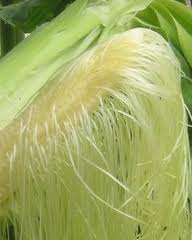Corn is a common food. Be it roasted or boiled, it is widely patronised because of its delicious tastes. Besides this, few people understand the healing properties of corn and its other parts, including the husks and corn silk.
For long, corn silk has been used traditionally by the Chinese and Native Americans to treat many diseases, including, kidney diseases, prostate disorder, urinary infections, bedwetting and obesity. Interestingly, scientists at the Kwara State University (KWASU), Malete, have also proven its efficacy in the treatment of kidney disorders, lowering of blood pressure and in promoting good vision.
Led by Mr Sabiu Saheed of Biochemistry Unit, Department of Biosciences and Biotechnology, the researchers found that corn silk tea is an alternative treatment for kidney disorders that can be packaged into teabags.
Cornsilk tea or infusion can be made by pouring one cup (240 ml) of boiling water over two teaspoons (2.5 g) of dried corn silk. The mixture is covered and steeped for 10–15 minutes. The tea should be consumed three times daily.
In a presentation, “Phytomedicine: A Case Study of Nephroprotective Potentials of Corn Silk”, he said that corn silk tea can also be used to treat diabetes and urinary tract disorders, among others.
Corn silk is suggested to help kidney disease patients lower their high creatinine level. Kidney disease patients, especially patients who have less than 50 per cent kidney function, often suffer from high creatinine levels.
Creatinine is a break-down product of creatine, which is mainly excreted by kidneys. When the kidneys are damaged severely, the creatinine will build up in blood, which will cause high creatinine level.
Corn silk, regarded as a natural diuretic, helps people increase urine output. In this condition, creatinine can be excreted through urine, so the creatinine level will be decreased. Besides, it can also help to remove some other toxins and excess fluid from body. Given that the swelling and high blood pressure in such persons are well controlled well, people will not get further damage to their kidneys.
Previously, Indonesia researchers also linked the effectiveness of corn silk tea on kidney problems in the journal, International Journal of Pharmacology, to its ability to improve functions of the kidneys. In fact, the longer the animals took the tea extract, the greater the improvement in their kidney function.
Further tests by Saheed and his co-researchers have found that corn silk tea is harmless, so concluding that it is as safe as other widely used green tea.
The researcher, however, declared in the 2015 edition of the Toxicology Reports that corn silk extract was a good candidature in the management of coronary heart diseases if consumed at the doses investigated considering its ability to help lower the level of bad cholesterol.
Also, researchers have corroborated the effect of corn silk extract on human blood pressure and intraocular pressure and found a significant reduction in average intraocular pressure and blood pressure within eight hours of its administration.
The study, published in the 2015 edition of Clinical and Experimental Optometry involved Segun George, F.K. Idu, L.F. O. Obika, all from the University of Benin.
It involved 40 participants with ocular hypertension but no detectable glaucomatous damage. Ocular hypertension is a precursor to glaucoma which is a sight threatening eye disease.
The researchers found corn silk extract lowered intraocular pressure significantly. Its peak effect on intraocular pressure was observed after four hours. This was preceded by the peak effect on blood pressure, which occurred after three hours of administration. The blood pressure lowering effect was dose-dependent in the two groups.

